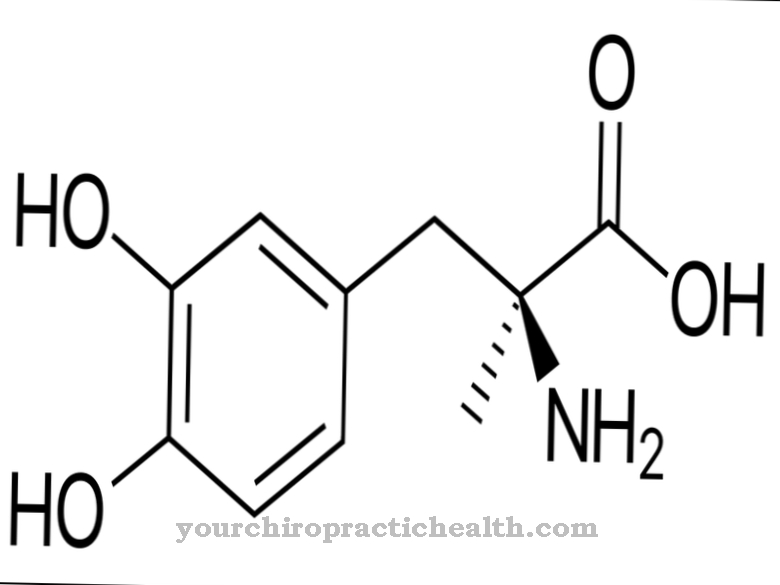As Nucleoside analog is a substance that resembles a natural nucleoside. In particular, these are drugs that are used for antiviral treatment (so-called nucleoside reverse transcriptase inhibitors, NRTIs). Nucleoside analogs therefore play an important role in the treatment of infectious diseases such as HIV, hepatitis B (HBV) or hepatitis C (HBC).
What are nucleoside analogs?
The term nucleoside analog is a collective term used in human medicine and pharmacology. This refers to various substances that are similar to natural nucleosides. A nucleoside is a compound consisting of a nucleic base and pentose, which is an important component of nucleic acid (an essential element of DNA). Nucleoside analogs therefore resemble the building blocks of genetic material.
Because of these properties, they succeed in suppressing the replication of viruses. This reduces the viral load in the body, which leads to noticeable improvements in the specific symptoms of the disease.
The most important nucleoside analogues include the drugs ribavirin, zidovudine, abacavir, tenofovir, didanosine, stavudine and lamivudine. They are used to treat HIV, hepatitis B (HBV), or hepatitis C (HBC).
Pharmacological effect on the body and organs
The effectiveness of nucleoside analogues is essentially based on their structural similarity to the components of the genetic material. The corresponding substances are absorbed by the cell and only develop a relevant effect through phosphorylation within the cell. In this process, the cell gradually converts the nucleoside analog to phosphate residues.
The analogues become part of the generated DNA as “wrong” components. This leads to an interruption of an otherwise properly constructed DNA chain and thus causes the polymerization to terminate. The reverse transcription of the cell is stopped and the virus can no longer multiply. After a while, there is a significant reduction in the viral load in the body.
Medical application & use for treatment & prevention
The field of application of the nucleoside analogs is the therapy of viral infections. The most important area here is the treatment of HIV and hepatitis B (HBV). The award for HIV therapy took place for the first time in 1987. The development of the nucleoside analogs marked the beginning of modern combination treatment, which led to considerable therapeutic success.
Modern preparations of the younger generation are used once a day in the form of film-coated tablets for oral intake. Nucleoside analogs are therefore easy for the patient to take himself. The nucleoside analogues staduvin, cytidine, zidovudine, lamivudine, abacavir and inosine are currently available for the treatment of HIV infection.
Nucleoside analogues can only be administered for therapy of hepatitis B (HBV) since the beginning of the 2000s. Before that, the active ingredient lamivudine, which was developed to treat HIV infection, and the somewhat more recent adefovir were administered. Modern treatment approaches, however, rely on nucleoside analogues. In particular, the drugs tenofovir and entecavir are administered. Doctors hope that this will result in less resistance and greater success in long-term therapy. Nucleoside analogs are combined with other substances to combat HBV.
Within the European Union and the United States of America, there is a strict prescription and pharmacy requirement, so that it is only possible to obtain it after prior medical prescription.
Risks & side effects
Although nucleoside analogs are considered well tolerated, the ingestion is not free of risks and side effects. Symptoms of the gastrointestinal tract often occur after use. Patients report unfounded bloating, nausea, vomiting, and diarrhea. In addition, general malaise and headaches can occur.
In addition, long-term side effects are also conceivable, which only show up after several years of use. Pancreatitis, myelotoxicity, polyneuropathy, lactic acidosis and lipoatrophy are common. This is likely due to the fact that nucleoside analogs are toxic to mitochondria. The intensity of the toxic effects, however, depends on the particular preparation used.
Patients who are allergic to the nucleoside analog used in each case must refrain from taking it, as there is a medical contraindication.












.jpg)



.jpg)










.jpg)
